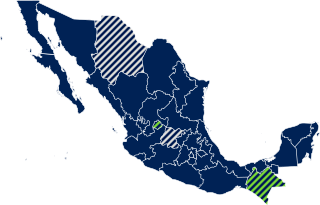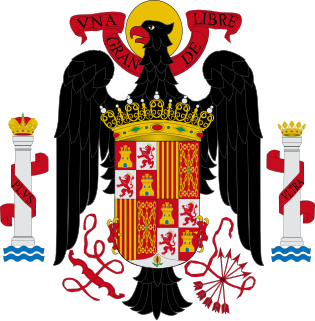A domestic partnership is a legal relationship, usually between couples, who live together and share a common domestic life, but are not married. People in domestic partnerships receive benefits that guarantee right of survivorship, hospital visitation, and others.
Overtime is the amount of time someone works beyond normal working hours. The term is also used for the pay received for this time. Normal hours may be determined in several ways:
The labour law concept of leave, specifically paid leave or, in some countries' long-form, a leave of absence, is an authorised prolonged absence from work, for any reason authorised by the workplace. When people "take leave" in this way, they are usually taking days off from their work that have been pre-approved by their employer in their contracts of employment. Labour laws normally mandate that these paid-leave days be compensated at either 100% of normal pay, or at a very high percentage of normal days' pay, such as 75% or 80%. A furlough is a type of leave.

Parental leave, or family leave, is an employee benefit available in almost all countries. The term "parental leave" may include maternity, paternity, and adoption leave; or may be used distinctively from "maternity leave" and "paternity leave" to describe separate family leave available to either parent to care for small children. In some countries and jurisdictions, "family leave" also includes leave provided to care for ill family members. Often, the minimum benefits and eligibility requirements are stipulated by law.

The Family and Medical Leave Act of 1993 (FMLA) is a United States labor law requiring covered employers to provide employees with job-protected, unpaid leave for qualified medical and family reasons. The FMLA was a major part of President Bill Clinton's first-term domestic agenda, and he signed it into law on February 5, 1993. The FMLA is administered by the Wage and Hour Division of the United States Department of Labor.

In Mexico there are three major kinds of public holidays:
In Australia, long service leave (LSL) is a period of additional paid leave granted to employees who have completed an extended period of service with an employer. Under Australian law, most employees are entitled to long service leave if they work for the same employer for a prolonged length of time, the threshold usually being between seven and ten years. Long service leave is separate from annual leave; employees receiving long service leave continue to accrue annual leave as normal and, at a minimum, as prescribed by the National Employment Standards.
Annual leave is a period of paid time off work granted by employers to employees to be used for whatever the employee wishes. Depending on the employer's policies, differing number of days may be offered, and the employee may be required to give a certain amount of advance notice, may have to coordinate with the employer to be sure that staffing is the employee's absence, and other requirements may have to be met. The vast majority of countries today mandate a minimum amount of paid annual leave by law.
Sick leave is paid time off from work that workers can use to stay home to address their health needs without losing pay. It differs from paid vacation time or time off work to deal with personal matters, because sick leave is intended for health-related purposes. Sick leave can include a mental health day and taking time away from work to go to a scheduled doctor's appointment. Some policies also allow paid sick time to be used to care for sick family members, or to address health and safety needs related to domestic violence or sexual assault. Menstrual leave is another type of time off work for a health-related reason, but it is not always paid.

Same-sex marriage is legally recognized and performed or pending throughout Mexico. Since August 2010, same-sex marriages performed anywhere within Mexico have been recognized by the 31 states without exception, and fundamental spousal rights have also applied to same-sex couples across the country. The last state without same-sex marriages is Tamaulipas, where legislation is pending as of November 2022.
The Labor Code of the Philippines is the legal code governing employment practices and labor relations in the Philippines. It was enacted on Labor day, May 1, 1974 by Late President of the Philippines Ferdinand Marcos in the exercise of his then extant legislative powers.

The New Zealand Employment Relations Act 2000 is a statute of the Parliament of New Zealand. It was substantially amended by the Employment Relations Amendment Act 2001 and by the ERAA 2004.

Employees' Entrance is a 1933 pre-Code film about the devious manager of a New York department store and his romantic involvement with a reluctant new employee. It was directed by Roy Del Ruth. In 2019, the film was selected by the Library of Congress for preservation in the National Film Registry for being "culturally, historically, or aesthetically significant".
Robinson-Steele v RD Retail Services Ltd (2006) C-131/04 is a European labour law and UK labour law case concerning the Working Time Directive, which is relevant for the Working Time Regulations 1998.
Menstrual leave is a type of leave where a person may have the option to take paid or unpaid leave from their employment if they are menstruating and are unable to go to work because of this. Throughout its history, menstrual leave has been associated with controversy and discrimination against women, with very few countries enacting policies; it is associated with low uptake in those countries that have enacted policies. It is seen by some as a criticism of women's work efficiency or as sexism. Supporters of menstrual leave policies compare its function to that of maternity leave and view it as a promoter of gender equality.
Shared earning/shared parenting marriage, also known as peer marriage, is a type of marriage where partners at the outset agree to adhere to a model of shared responsibility for earning money, meeting the needs of children, doing household chores, and taking recreation time in near equal fashion across these four domains. It refers to an intact family formed in the relatively equal earning and parenting style from its initiation. Peer marriage is distinct from shared parenting, as well as the type of equal or co-parenting that father's rights activists in the United States, the United Kingdom and elsewhere seek after a divorce in the case of marriages, or unmarried pregnancies/childbirths, not set up in this fashion at the outset of the relationship or pregnancy.

The Maternity (Amendment) Bill 2017, an amendment to the Maternity Benefit Act, 1961, was passed in Rajya Sabha on 11 August 2016, in Lok Sabha on 9 March 2017, and received an assent from President of India on 27 March 2017. The Maternity Benefit Act, 1961 protects the employment of women during the time of her maternity and entitles her of a 'maternity benefit' – i.e. full paid absence from work – to take care for her child. The Act is applicable to all establishments employing 10 or more than 10 persons in Factories, Mines, Plantation, Shops & Establishments and other entities. Establishments employing 50 or more employees are also required to provide crèche facilities, either separately or along with common facilities within a prescribed distance.

Guardianship in Francoist Spain (1939-1975) and the democratic transition (1975-1985) was a system which provided husbands and fathers with tremendous legal control over women. Male members of the family were able to transfer legal control of their daughters over to the state. One of the developments after the Civil War was the restoration of the Civil Code of 1889 by the Franco regime. This made women into virtual slaves to their husbands and fathers with men controlling not only the custody of their children, but their bank accounts, contracts, nationality and residency. Women did not reach the age of majority until 21, 25 if they were unmarried or not in a convent. Husbands and fathers could kill their wives and daughters for committing adultery or having sex outside marriage. Minor reforms were made in the 1950s and 1960s, largely as a result of economic pressures.
A termination of employment in Argentina is the rescission of an employee's employment contract, decided unilaterally by the employer, with or without a cause. As the requirements to proceed with a termination of employment and the consequences of the decision are regulated by each legislation, there are differences depending on the country whose legislation is to be applied. This article refers exclusively to termination of employees who, having worked in Argentina, are governed by the laws of that country.







